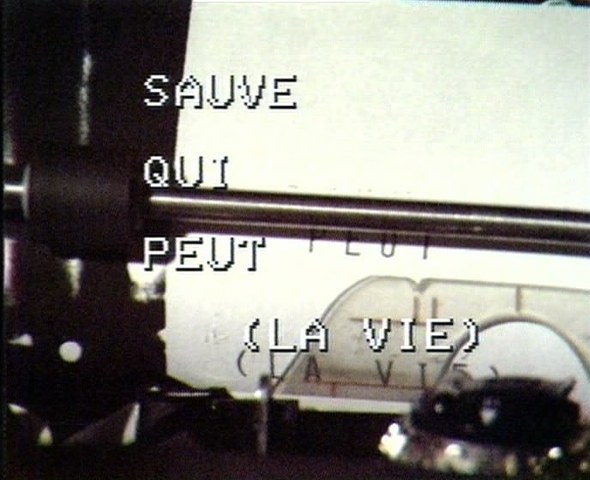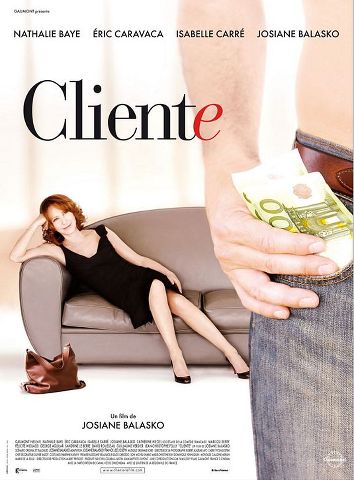Quote:
Here are some ways that Bettrand Tavernier, in production notes for his new film ”A Week’s Vacation,” describes his film: ”A portrait of a woman against the background of almost murmured questions that concern us all, approached without didacticism.” ”A laughing fit before you realize it’s going to snow.” ”An old man who knows a lot.” ”A motorcycle engine more familiar than a Moliere play.” ”A letter you read at the end of summer.”Read More »
Nathalie Baye
-
Bertrand Tavernier – Une semaine de vacances AKA A Week’s Vacation (1980)
1971-1980Bertrand TavernierDramaFrance -
Maurice Pialat – La gueule ouverte AKA The Mouth Agape (1974) (HD)
1971-1980ArthouseDramaFranceMaurice PialatMonique Mélinand portrays a woman in the late stages of terminal illness. Her son Philippe (Philippe Léotard), Philippe’s wife Nathalie (Nathalie Baye), and her husband Roger (Hubert Deschamps) attempt to comfort her as she navigates through her ordeal. However, those two closest men in her personal life begin to get more involved in their relationships with multiple mistresses. Her husband flirts with customers in their clothing and haberdashery store while her son flirts with her nurses. The film incorporates elements of Mozart’s opera Così fan tutte to poetic effect, relating to these scenes. In the end scenes, she goes through several final, deeply emotional moments as the disease claims her life. (Wikipedia)Read More »
-
Josiane Balasko – Cliente AKA A French Gigolo AKA Client (2008)
2001-2010DramaFranceJosiane BalaskoRomanceAMG: Gallic actress-turned-director Josiane Balasko – a Euro cinema mainstay best known for her unconventional romantic lead in Bertrand Blier’s 1989 Trop belle pour toi – helms and co-stars in Cliente, a quirky and offbeat look at the bittersweet life of a male prostitute, which Balasko co-adapted from her 2005 novel with screenwriter Franck Lee Joseph. Eric Caravaca stars as Marco, a French hustler in his mid-30s whose path criss-crosses with that of infomercial actress Judith (Nathalie Baye) in a local park. A nascent divorcee, she’s in the mood for a quick fling, and follows suit with Marco, but this infuriates her sister, Irene (Balasko). Both sexual partners intend to enjoy the liaison as a one-time engagement; for better or worse, it soon repeats itself on multiple occasions and evolves into a deep-seated and very sticky relationship with lots of emotional strings. Significantly, this makes matters very complex and messy for Marco, who happens to be married to hairdresser Fanny (Isabelle Carre) and shares a residence with her, her mother (Catherine Hiegel) and her goth-decked sister (Marilou Berry, Balasko’s real-life daughter)). Fanny, it seems, harbors no knowledge of Marco’s real profession; when she discovers the truth, she systematically attempts to use her husband’s profession to her own selfish advantages in lieu of objecting passionately or leaving him.Read More »
-
Jean-Luc Godard – Sauve qui peut (la vie) aka Slow Motion (1980)
Drama1971-1980ArthouseFranceJean-Luc Godard
Noel Megahy @ DVDTimes.co.uk wrote:
During the 1970’s Jean Luc Godard abandoned the notion of making normal commercial films for cinematic distribution in favour of his Marxist-Leninist ‘Dziga Vertov’ propaganda films. The director returned to regular filmmaking in 1980 with Sauve Qui Peut (La Vie), his first theatrical release since his furious outburst against modern bourgeois society in 1967 with Weekend. Delivering another hate-filled attack on almost every aspect of modern society, it’s like he had never been away.Read More »
-
Jean-Luc Godard – Scénario de ‘Sauve qui peut la vie’ AKA Scenario for Every Man for Himself (1979)
1971-1980FranceJean-Luc GodardShort Film
In Scénario de ‘Sauve qui peut la vie’ (1979), director Jean Luc Godard discusses many of the themes, motifs and film-making practices that would eventually be utilised in the creation of his following film, Sauve qui peut (la vie) (1980). The film is interesting in the same way that Leos Carax’s later short film Sans Titre (1996) was interesting; offering us a window into his particular creative world and establishing many of the ideas and characteristics that would later be found in Carax’s own underrated masterpiece Pola X (1999). Carax, of course, is one of the filmmakers most clearly influenced by Godard, even appearing as an actor in Godard’s widely criticised adaptation of King Lear (1987), as well as paying homage to the older filmmaker with his earliest films, Boy Meets Girl (1984) and Mauvais Sang (1986).Read More »


